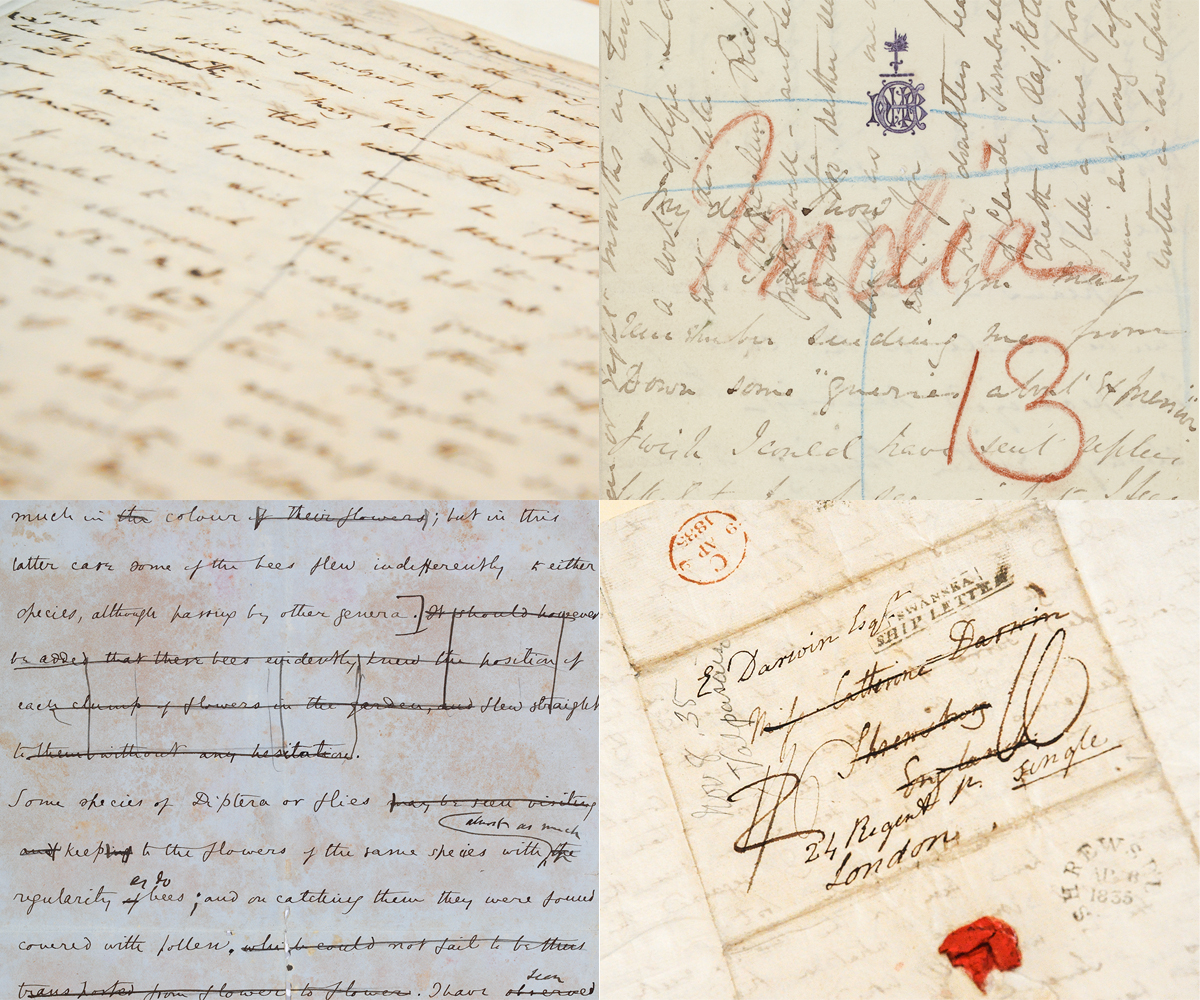There are a wide range of possibilities for opening discussion and essay writing on Darwin's correspondence. We have provided a set of sample discussion questions and essay questions, each of which focuses on a particular topic or correspondent in depth. The sample essay questions are designed to help students start researching and writing an essay that centres on Darwin's letters, narrowing the field to a specific exchange of fruitful and feasible letters from the hundreds of documents on a very general issue. These lists are by no means exhaustive, but it should help to give a sense of the range of possibilities and what makes for a good topic.
General Discussion Questions
- Why was correspondence so important for Darwin?
- How did Darwin encourage people he did not know to write to him?
- How do people address one another in the correspondence?
- What kind of scientific material did letters contain?
- How much knowledge does Darwin assume when he writes to different people?
- What sort of things could one say in a letter that could not be said in print, and vice versa?
- Did social differences, such as gender and class, matter in scientific exchange?
- What does Darwin do when he wants to introduce a potentially controversial topic?
- What reasons did people have for writing to Darwin?
- How was friendship established through correspondence, and what roles could friendship play in science?
- Was Darwin's use of correspondence unusual in the 19th century?
- How does nineteenth-century correspondence differ from discussions on the internet today?
Essay writing
- How was Darwin's early species theory discussed between friends? [J. D. Hooker (1845-6)]
- What ethical implications did readers draw from Darwin's theories?[Mary Boole (1864), F. E. Abbot (1871-4), John Fordyce (1879), William Graham (1881)]
- How did Darwin act as a mentor in science? [John Lubbock (1854-6), John Scott (1861-4), William Darwin (1864-6)]
- Who counted as a 'real scientist' for Darwin? [Treat, Becker, or William Tegetmeier, as compared with, e.g., Asa Gray]
- Did sex matter in Darwin's scientific exchanges? [Lydia Becker, Emily Pfeiffer, Mary Treat, J. D. Hooker, T. H. Huxley]
- What was Darwin's influence on experimental practice? [John Scott and sexual dimorphism (1862), Fritz Müller and climbing plants (1864), Hermann Müller and the adaptations of insects to flowers (1867), Francis Galton on inheritance theory (pangenesis) (1870-1)]
- How did Darwin involve his family in his research? [Henrietta Darwin (1870-71), William Darwin (1863-4, 1870), George Darwin (1870-71)]
- Was Darwin's attitude to his children influenced by their sex? [Henrietta Darwin, William Darwin, George Darwin, W. D. Fox]
- How was Victorian science managed in relation to private or personal life? [Charles Lyell, Emma Wedgwood, W. D. Fox (1830s)]
- How were more technical disagreements carried out in letters? [Hooker on geographic distribution of species (1864--6 and earlier), Wallace on the selection of sterility (1868), Wallace on sexual selection (1869-70)]
- How were major scientific controversies handled in correspondence? [Sedgwick (1859), Owen (1859-60), Gray (1861-8), Wallace (1869-70), Mivart (1871-4)]
- Did Darwin believe in progress? [Lyell (1860, 1881), Hooker (1862), Lubbock (1865), Graham (1881)]
- How were debates over design in the natural world conducted? [F. J. Wedgwood, Asa Gray, J. F. W. Herschel, Charles Lyell (c. 1860--1)]
- How did Darwin investigate beauty in nature and human society? [In different human races (David Forbes, 1868, W. Reade, 1870-1) As a product of natural selection, e.g. coloured seeds and fruit (Fritz Müller, 1866)]



